#Shin Saburi
Text

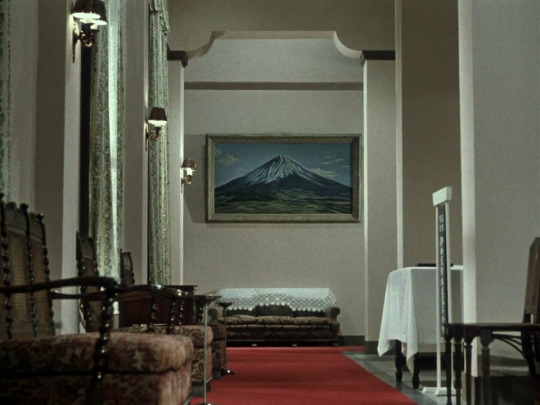
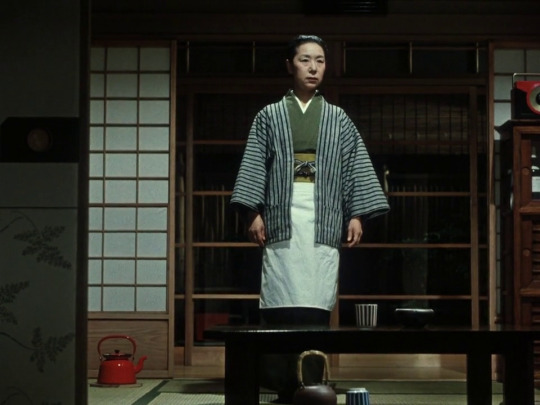
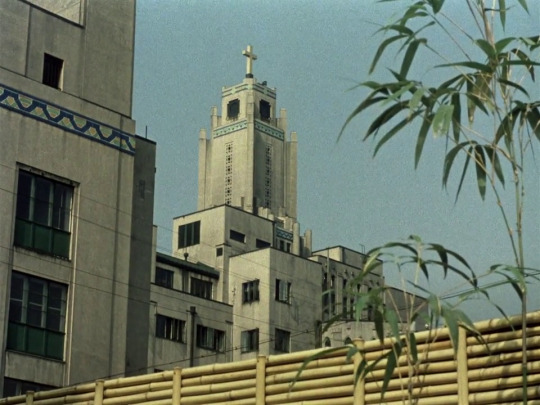

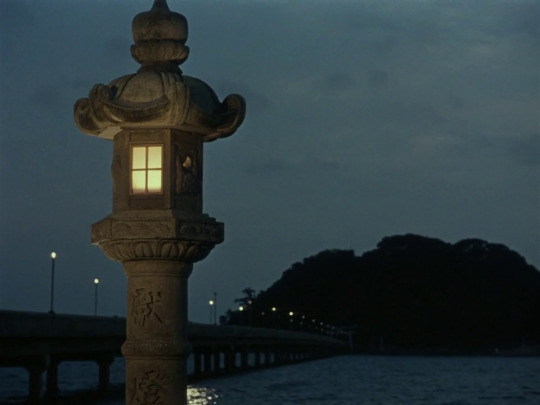
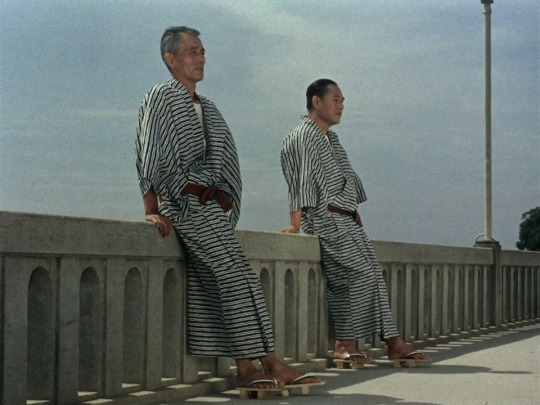


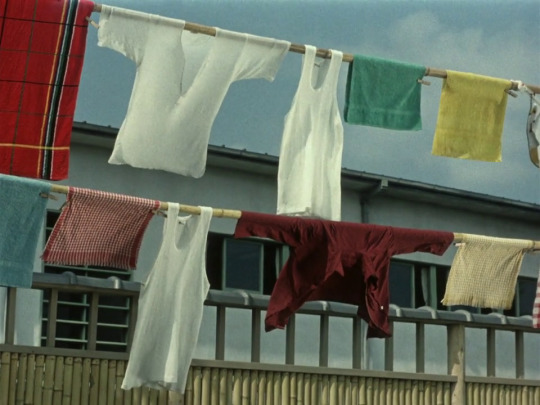
Equinox Flower (1958) | dir. Yasujirō Ozu
#equinox flower#yasujiro ozu#kinuyo tanaka#ineko arima#shin saburi#films#movies#cinematography#scenery#screencaps#yasujirō ozu
190 notes
·
View notes
Text


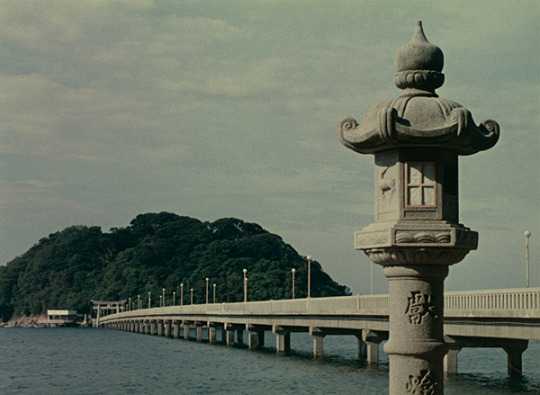
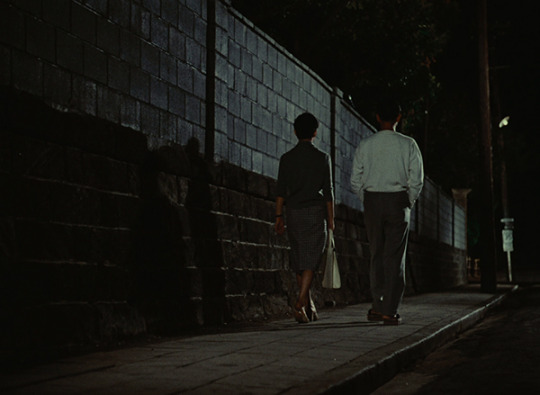
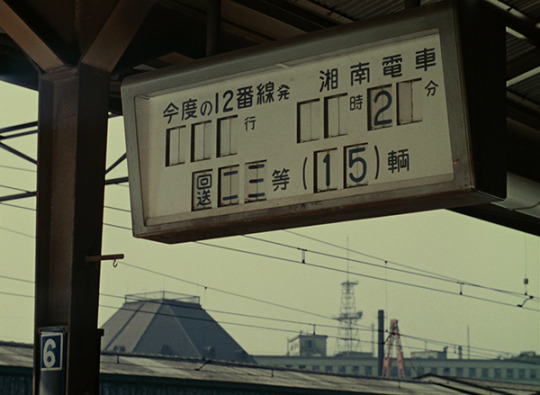
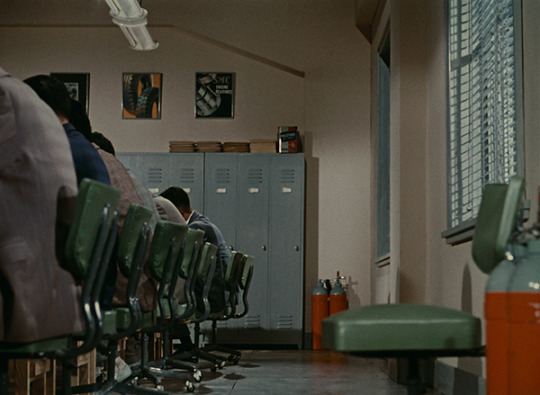
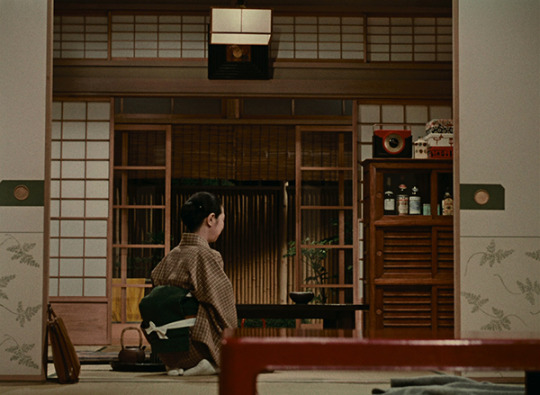
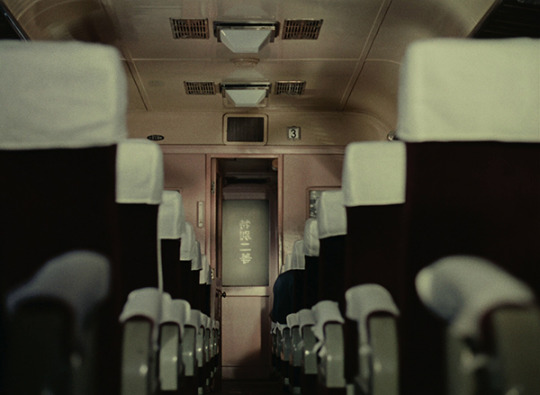
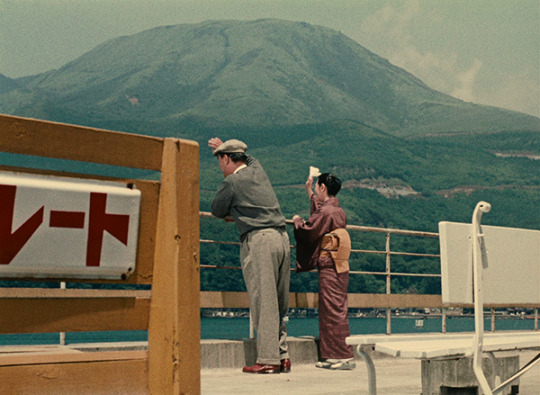

"Can´t I find my own happiness?"
Equinox Flower・彼岸花
Dir. by Ozu Yasujiro, 1958
#equinox flower#higanbana#yasujiro ozu#ozu yasujiro#shin saburi#saburi shin#ineko arima#arima ineko#kinuyo tanaka#tanaka kinuyo#1958#*
117 notes
·
View notes
Text
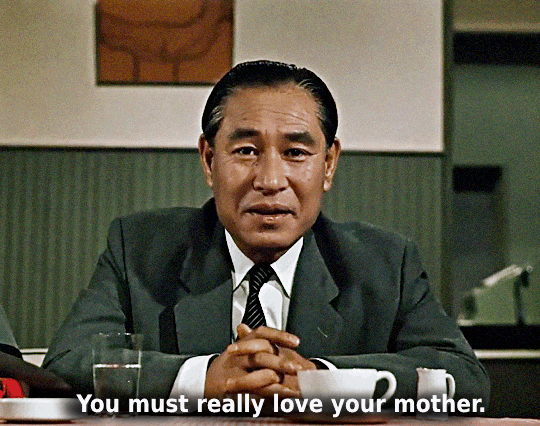

LATE AUTUMN || Akibiyori (1960) dir. Yasujirô Ozu
#late autumn#yasujirō ozu#worldcinemaedit#cinemaspast#classicfilmcentral#filmauteur#asiandramasource#cinematv#filmgifs#akibiyori#秋日和#yoko tsukasa#shin saburi#yasujiro ozu#late autumn 1960#japanese movie#yōko tsukasa#missues#ellisgifs#ozugifs#ozu killlllssss meeeee#w h a t am i supposed to do with thisss#queue
75 notes
·
View notes
Text
Goodbye, Hello (1959)



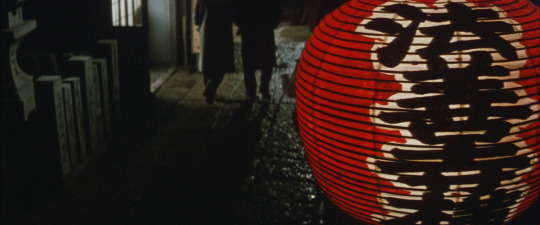



あなたと私の合言葉 さよなら、今日は Goodbye, Hello (1959)
directed by Kon Ichikawa
#あなたと私の合言葉 さよなら、今日は#goodbye hello#kon ichikawa#japanese cinema#japanese film#stills#ayako wakao#shin saburi#1950s
24 notes
·
View notes
Text

Koji Tsuruta and Shin Saburi in The Flavor of Green Tea Over Rice (Yasujiro Ozu, 1952)
Cast: Shin Saburi, Michiyo Kogure, Koji Tsuruta, Keiko Tsushima, Chikage Awashima, Chishu Ryu, Kuniko Miyake, Eijiro Yanagi, Hisao Toake. Screenplay: Kogo Noda, Yasujiro Ozu. Cinematography: Yuharu Atsuta. Art direction: Tatsuo Hamada. Music: Ichiro Saito.
Yasujiro Ozu's The Flavor of Green Tea Over Rice begins like a 1950s American TV sitcom in which Lucy and Ethel try to pull a fast one over Ricky. In this case, Lucy is Taeko Satake (Michiyo Kogure), who wants to get away for a day with Ethel, or Aya Amamiya (Chikage Awashima), at a resort spa without letting Ricky, or Mokichi Satake (Shin Saburi), know what she's up to. So Taeko decides to tell Mokichi that her niece has fallen ill at a class reunion and she needs to go tend to her. But just as she's about to depart, the niece, Setsuko (Keiko Tsushima), drops by the Satake home, so Taeko has to swiftly come up with a Plan B. What we are in for, obviously, is a comedy of marital errors. The Satakes have no children and their marriage has grown stale, which provides an object lesson for Setsuko, whose parents are pressuring her into an arranged marriage and have set up a meeting with the potential groom. Seeing that not only do Taeko and Mokichi have no passion in their lives but Aya is also insouciant about the extramarital affairs of her husband, Toichiro (Hisao Toake), Setsuko is determined not to fall into their trap. Where Ozu excels is in the presentation of the texture of his characters' lives -- Taeko with her gossipy friends, Mokichi with his daily office grind followed by visits to bars and pachinko parlors, sometimes with his young friend Noboru (Koji Tsuruta), whom Mokichi is helping get a start in life after Noboru graduates from college. (There's a wonderful little moment when a slightly inebriated Noboru sings "Gaudeamus Igitur.") At one pachinko parlor, Mokichi discovers that the owner is an old army buddy, Sadao, played by Ozu regular Chishu Ryu, whose chief role in the film is to provide a note of nostalgia for the more adventurous days during the war. Escaping from the meeting with her prospective groom, Setsuko joins Mokichi at the parlor, where she also meets Noboru, and we see a potential relationship spark between the two young people. But when Taeko learns that Mokichi has met with Setsuko when she should have been at the matchmaking session, she's furious and refuses to speak to her husband. Eventually, the crisis is resolved in a lovely scene in which Taeko and Mokichi begin to resolve their marital problems while raiding the larder after the maid has gone to bed, though the film ends with Setsuko and Noboru having what looks like their first fight. Ozu's bittersweet little comedy is sometimes dismissed as a minor work by a master director, but the mastery is very much in evidence.
3 notes
·
View notes
Text
vimeo
Las canciones de Higanbana
彼岸花 (Higanbana) [Yasujiro Ozu, 1958]
#Cine japonés#Japanese Cinema#Shin Saburi#Ryūji Kita#Nobuo Nakamura#Toyo Takahashi#Chishū Ryū#Canciones en el cine#Cinema Songs#Japanese songs#Canciones japonesas
0 notes
Photo

第4回 2013 年 12 月6 日
会場:仙台 Club ADD
出演者:
・佐藤実 minoru sato m/s - ライブ
・佐藤貴宏 - ライブ
・菊地良博 - ライブ
・mamafufu - ライブ
・DJ まつたけの花 aka 浜田まさるの晩ごはん | DJ Victory - DJ
・DJ 佐分利信 | DJ Saburi Shin - DJ
・DJ ステーキハウスによる肉食怪獣劇場 - DJ
固定メンバーがライブ演奏を、またそれぞれが変名でDJ を行った。
まつたけの浜 DJ 録音:
https://hidoievent.tumblr.com/post/82008299669/just-uploaded-%E3%81%BE%E3%81%A4%E3%81%9F%E3%81%91%E3%81%AE%E8%8A%B1-aka
0 notes
Photo

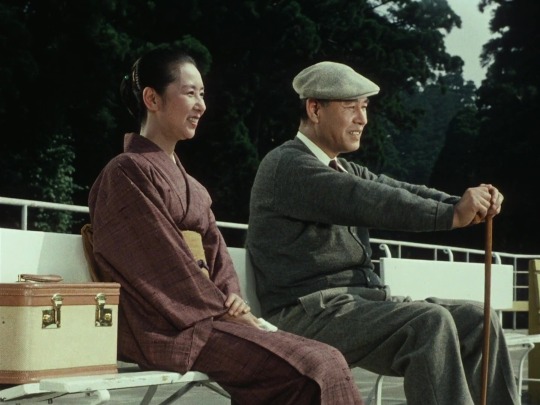
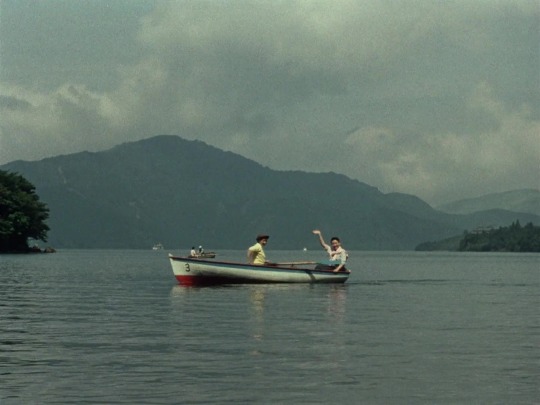



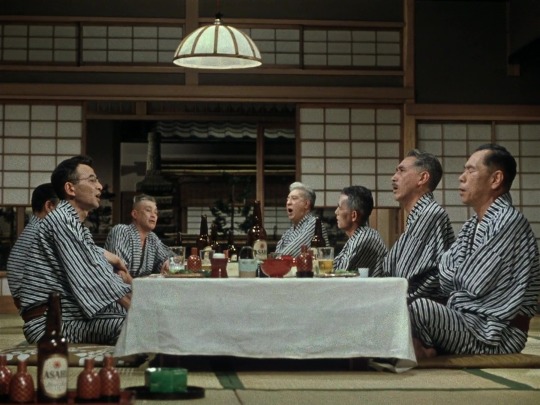
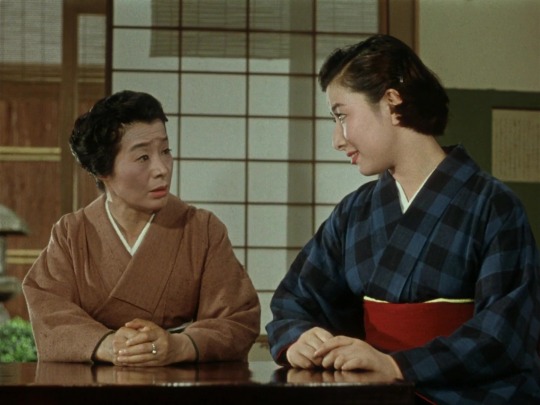
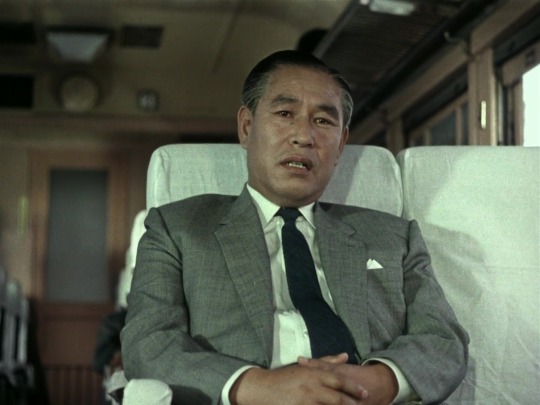

Equinox Flower / Higanbana (1958, Yasujirō Ozu)
彼岸花 (小津安二郎)
3/18/22
#Equinox Flower#Yasujiro Ozu#Shin Saburi#Kinuyo Tanaka#Ineko Arima#Yoshiko Kuga#Keiji Sada#Chishu Ryu#Chieko Naniwa#Teiji Takahashi#drama#comedy#50s#Japanese#Japanese Golden Age#domestic#gendaigeki#families#dysfunctional family#father and daughter#arranged marriage#marriage#modernization#tradition#changing times
14 notes
·
View notes
Photo
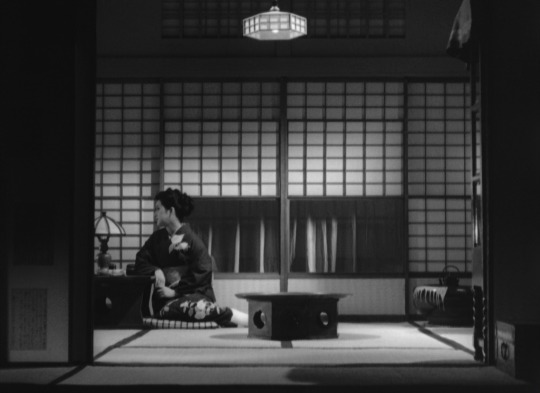
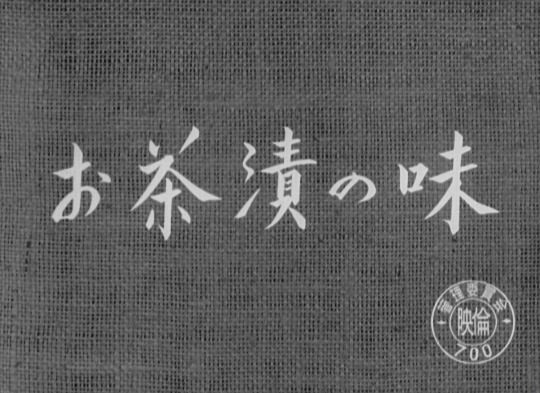


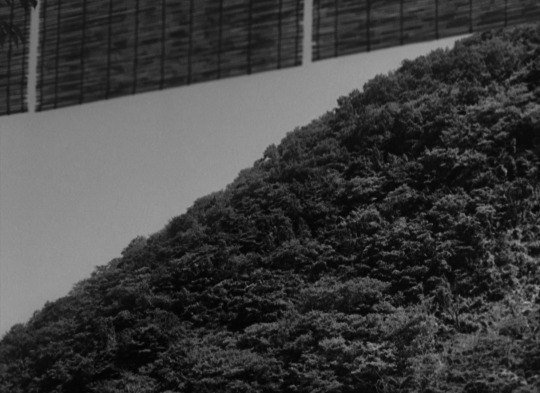
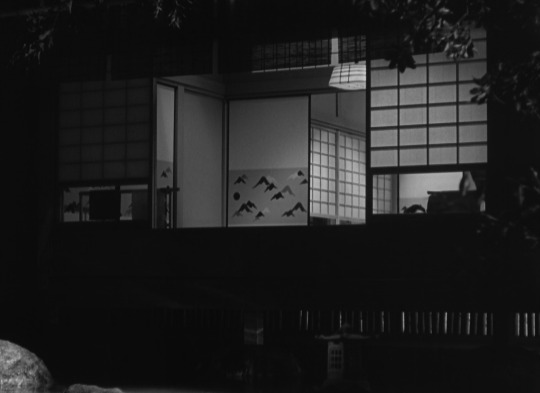



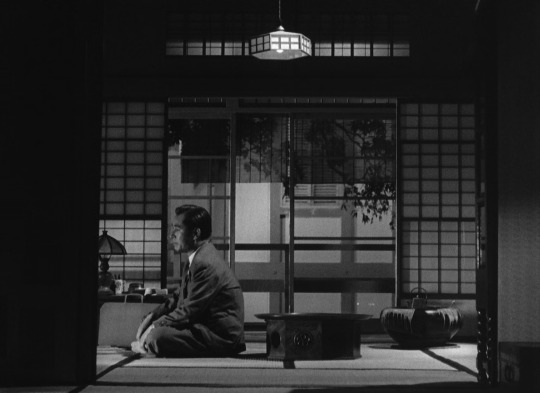
The Flavour of Green Tea Over Rice | Yasujirô Ozu | 1952
#Yasujirô Ozu#Ozu#The Flavour of Green Tea Over Rice#1952#Michiyo Kogure#Shin Saburi#The Flavor of Green Tea Over Rice
200 notes
·
View notes
Photo

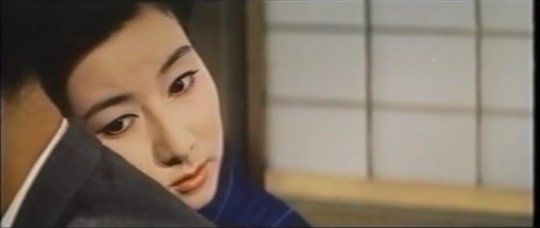


Ryōjū (Gosho Heinosuke, 1960)
#ryōjū#hunting rifle#gosho heinosuke#heinosuke gosho#okada mariko#mariko okada#gosho#saburi shin#shin saburi#yamamoto fujiko#fujiko yamamoto#1960#japanese cinema#japanese film#japanese movies
7 notes
·
View notes
Text
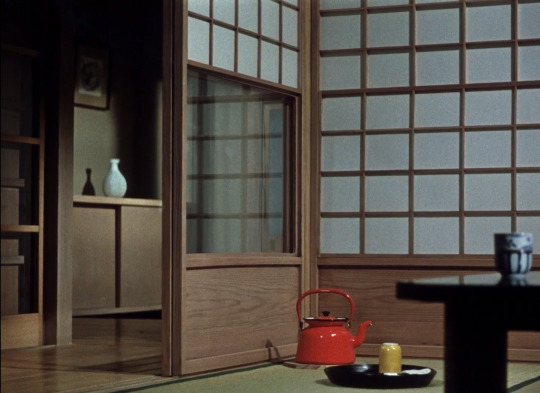

彼岸花 Equinox Flower (1958) -- Yasujiro Ozu
#彼岸花#equinox flower#yasujiro ozu#late ozu#coloured#brownhair#postwar japan#modernisation#transition#marriage#family#interior#composition#red#furniture#shin saburi#kinuyo tanaka#fujiko yamamoto#chishu ryu#japanese films#japan#film stills#mine
4 notes
·
View notes
Photo

#toda-ke no kyōdai#ozu yasujirō#yasujirō ozu#brothers and sisters of the toda family#shin saburi#saburi shin#1941#japanese cinema
3 notes
·
View notes
Photo
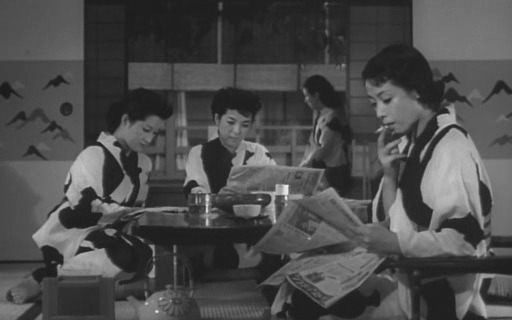
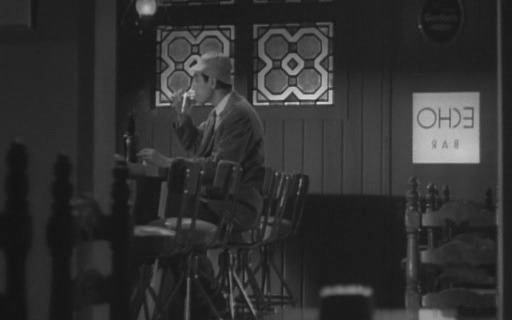

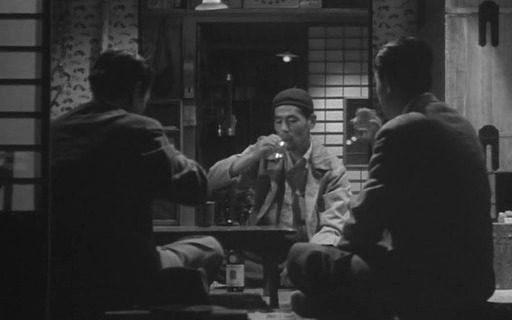





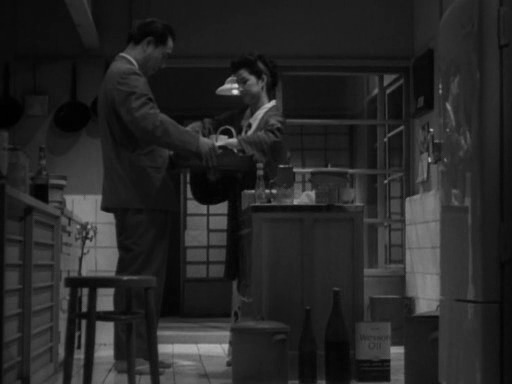
The Flavor of Green Tea over Rice (Ozu, 1952)
#the flavor of green tea over rice#yasujiro ozu#ozu#yasujirō ozu#shin saburi#michiyo kogure#koji tsuruta#chishu ryu#ochazuke no aji#お茶漬けの味#cinema#film#japan
3 notes
·
View notes
Photo
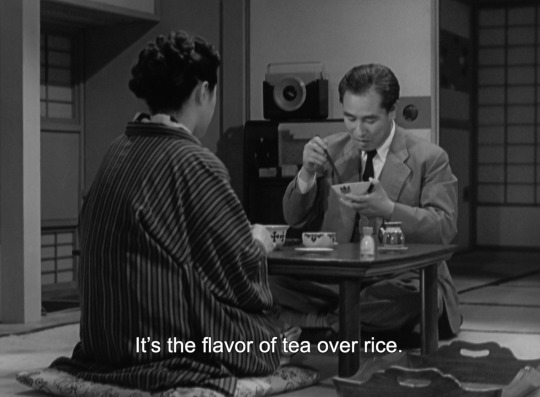


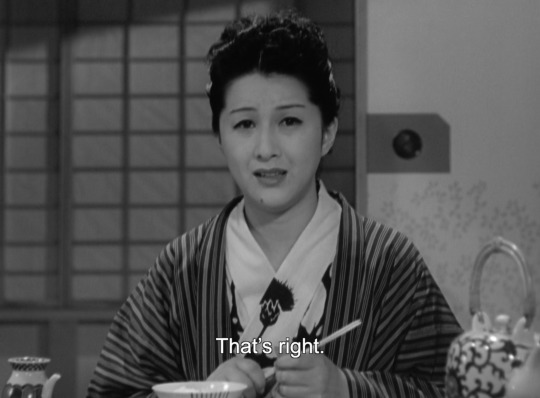
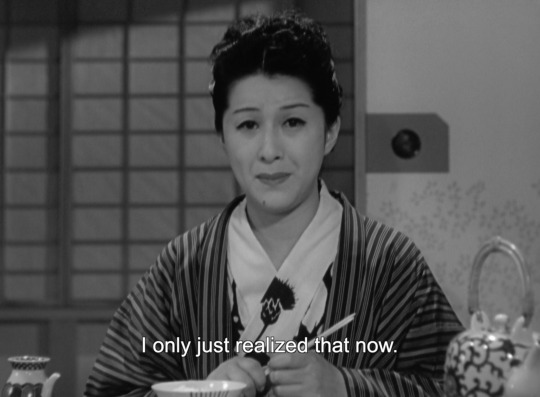
Ochazuke no aji, 1952 (dir. Yasujirō Ozu)
18 notes
·
View notes
Text
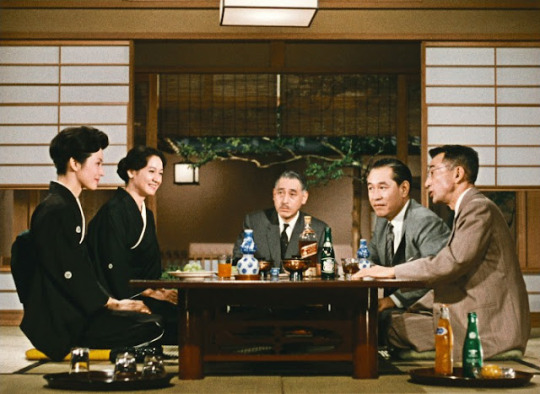
Yoko Tsukasa, Setsuko Hara, Ryuji Kita, Shin Saburi, and Nobuo Nakamura in Late Autumn (Yasujiro Ozu, 1960)
Cast: Setsuko Hara, Yoko Tsukasa, Mariko Okada, Shin Saburi, Nobuo Nakamura, Ryuji Kita, Keiji Sada, Chishu Ryu. Screenplay: Kogo Noda, Yasujiro Ozu, based on a novel by Ton Satomi. Cinematography: Yuharu Atsuta. Production design: Tomiji Shimizu. Film editing: Yoshiyasu Hamamura. Music: Takanobu Saito.
It's possible to think of 1960 as a kind of watershed year in Japanese film, with the appearance of two such radically different films as Nagisa Oshima's The Sun's Burial and Yasujiro Ozu's Late Autumn. The contrast between the lurid chaos of Oshima's underworld and the strict geometry (of both style and morals) of Ozu's middle classes couldn't be sharper. I imagine some alien intelligence on a distant planet intercepting transmissions of both films and wondering that they could possibly come from the same world, let alone the same country (and even the same film studio, Shochiku). Ozu was of course an established master, whereas Oshima was beginning a career -- with a bang, it should be said, making three feature films that year. The razzle-dazzle of The Sun's Burial was long behind Ozu, if it was ever really in his cinematic vocabulary. But both films speak to the restless undercurrents in Japanese postwar society, Oshima's by confronting the disorder and corruption, Ozu's by slyly examining the breakup of stifling traditions in the Japanese family. Both end with solitary women, the gangster-prostitute Hanako in The Sun's Burial and the empty-nest mother Akiko (Setsuko Hara) in Late Autumn, confronting loneliness. But if Hanako has a counterpart in Ozu's film, it's really the feisty Yuriko (Mariko Okada), the representative of the younger generation who sorts out all the tangled threads that the meddling older generation has gotten snared in. At this point I feel the comparisons getting strained, but it's always fun to let differing films sort themselves out.
2 notes
·
View notes
Text
vimeo
彼岸花 (Higanbana) [Yasujiro Ozu, 1958]
#Equinox Flower#Higanbana#Yasujiro Ozu#Ozu#Cine japonés#Japanese Cinema#Cinema Conversation#Cinema Dialogue#Shin Saburi#Ryūji Kita#Nobuo Nakamura#Toyo Takahashi
1 note
·
View note